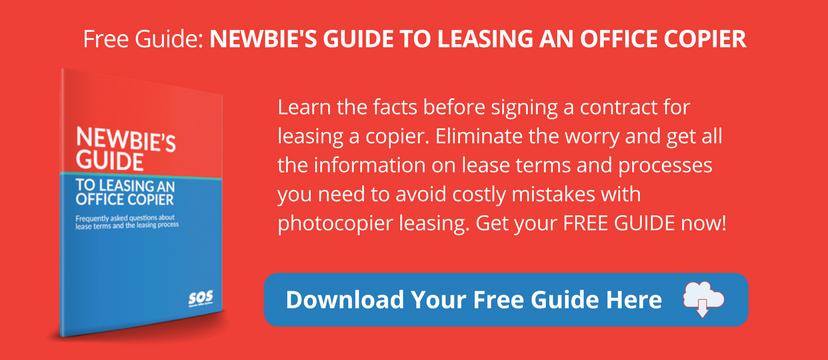Rent, Buy or Lease Your Copier? How to Decide
A copier is a vital component of a business’s operations. If you are just beginning your research on copiers or if you’ve had a copier for five years and it needs to be replaced, then the first thing you want to do is decide whether you should buy or lease a copier.
If you’ve never investigated whether you should buy or lease a copier, or if it’s been so long since you’ve gone down the buy vs. lease copier road that you don’t know which way to turn, don’t panic. Some simple guidelines will help you determine whether it’s better to buy or lease a copier.
Should you buy or lease a copier? Some facts to help you decide.
Buy or lease a copier: PURCHASE pros and cons
For most smaller businesses looking at whether to buy or lease a copier, it does not make financial sense to buy a copier. Businesses that want to hold onto their capital and don’t have $8,000 to $10,000 upfront to pay for a copier usually go with an alternative.
Once you’ve spent thousands of dollars on the purchase of a copier, you will be reluctant to let it go. If you keep the copier until the staff calls it an antique, you will miss out on technological advances that can help your office operate more efficiently. You probably also will face escalating repair costs as your machine reaches the end of its life.
If you do happen to have the cash on hand, buying a copier outright means you won’t have to concern yourself with making monthly lease payments and pay years of interest to a lending institution. An expense that tends to get overlooked when a company decides to lease a copier is that they could be responsible for shipping costs at the end of the lease. The shipping costs could easily exceed $500.
Buy or lease a copier: LEASING pros and cons
When deciding whether to buy or lease a copier, many companies concerned about cash flow are uncomfortable making a substantial investment in a copier purchase and diverting funds from more pressing business needs. Though it costs slightly more to lease a copier because of interest, monthly or quarterly payments are more appealing to many than paying the sizable purchase price all at once.
When considering whether to buy or lease a copier, do not overlook leasing’s tax advantage. When you purchase a copier, you can only deduct the equipment’s depreciation, which typically equates to 40-percent of the purchase price in the first year and is roughly 25-percent of the purchase price in the following years. When you lease a copier, the IRS deems the lease installments as a pre-tax business expense, which allows you to deduct the full expense each time you pay your leasing company.
When you buy a copier, it might be a valuable asset to you longer than if you leased it for three years. When you lease a copier, you are financing the value over the term of the lease. For your purposes, the copier’s value does not extend beyond the lease.
Buy or lease a copier: Consider technological upgrades
Lease terms typically span between three and five years. This finite time-period means you will likely upgrade your copier equipment at the end of your contact term. New technology will undoubtedly be more efficient than old equipment. Guess what ties into your office equipment’s efficiency? Your employee’s productivity. New equipment will speed up and improve business processes and lower maintenance costs. Giving your staff the tools to allow them to work as efficiently as possible makes good business sense.
Another word about new technology. When you are weighing whether you want to buy or lease a copier remember that up into the 1990’s, a copier’s job was limited to copying. Today, they are multifunctional devices that can print, fax, and scan besides make copies. Copiers are a key office document management tool. The point is – who knows how copiers will evolve in five years. Just like you were able to eliminate the need for a fax machine, the next generation of copiers might have expanded functions that can help you achieve further economies.
If you know you’ll be doing a high volume of printing and copying, and you want the option of getting the benefits of new technology sooner, then a shorter term lease may be the right choice for you.
Buy or lease a copier? When to think about renting a copier
If the whole “should I buy or lease a copier” decision hasn’t given you enough to think about yet, there is a third option to throw into the mix: renting a copier.
Renting a copier is usually done for specific reasons and not regarded as a long-term copier solution. Copier rentals are typically short term. Rental copiers are often refurbished machines needed on a temporary basis. Copiers can be rented on a month-to-month basis for up to year. It does cost more to rent a copier than to buy or lease a copier, but you only have a short-term commitment.
Renting is a good option for an accounting firm that needs a supplemental copier during tax season, a construction site that includes a temporary office or a real estate trailer set up at new development. Trade shows often roll in rented copiers and businesses undergoing the daunting task of converting paper files to electronic files sometimes need to boost their copying capacity temporarily with a rental.
When you’re looking at whether you should buy or lease an office copier, renting can be an alternative if your business is new and has yet to establish a solid credit-rating. When you’re looking at whether to buy or lease a copier, renting is another option that can be used as a quick-fix solution or if you have a short-term need.
What about service?
No matter which decision you make about renting, buying or leasing your copier, don’t neglect service. While you might not be technically required to get a service contract when you buy, it’s a mistake not to do so.
Learn more: Tips for Choosing the Right Copier Service Contract
Get more details for your decision to buy or lease your copier
For additional helpful information on the buy or lease a copier topic, check out our free guide: Newbie’s Guide to Leasing an Office Copier




